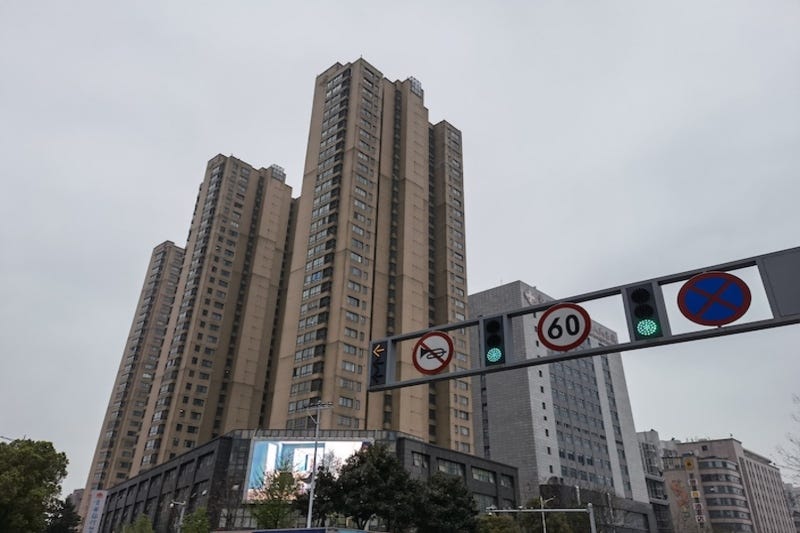CX Daily: Localities Push Ahead With Personal Bankruptcy Pilots as National Efforts Stall
China loosens its Covid testing rules for travelers from the U.S. Liu He vows to support the healthy development of the platform economy
Photo: VCG
Bankruptcy /
In Depth: Localities push ahead with personal bankruptcy pilots as national efforts stall
Qi Sheng, 49, ran an after-school tutoring firm with his wife that served around 200 students in Shenzhen. In a good year, their business could make 200,000 yuan ($29,450) a month. Life was comfortable — until Covid-19 put in-person classes in limbo.
The pandemic left their classrooms empty for months. The “double reduction” policy — which aims to reduce Chinese students’ workload from school and private tutoring — added fuel to the fire and forced them to take on more than 1 million yuan of debt as they struggled to pay their rent and workers. On top of that, Qi’s wife was stricken with illness and required expensive treatment. Pressed by growing financial strains, Qi and his wife filed for personal bankruptcy liquidation at the Shenzhen Intermediate People’s Court in May 2021.
Fiscal /
China’s tax revenue sinks amid rollout of new VAT refund policy
A new value-added tax (VAT) refund policy to help struggling small businesses had a devastating impact on the budgets of many local governments in its first month of operation, official data show, underscoring the financial cost of shoring up the economy amid the worst wave of Covid-19 outbreaks since early 2020.
Several cities in eastern and southern China recorded declines in fiscal revenue in April after the new VAT credit refund system went into effect, government data show. The changes are adding pressure on local finances already suffering from a slowdown in economic growth that’s crimping tax receipts from corporate profits and consumption.
China’s April revenue slumps 41% on tax cuts to counter Covid effects
FINANCE & ECONOMY
China’s property market, an important pillar of the economy, has been in a slump for almost a year.
Housing /
Three tough-to-crack housing markets relax homebuying controls
Some of China’s cities with the strictest homebuying controls are now relaxing policies and jumping on the bandwagon to bolster the ailing real estate sector as the central government steps up support.
Hangzhou in eastern China’s Zhejiang province, Chengdu in the southwestern Sichuan province and Haikou in the southern tropical island of Hainan were the latest to revise policies to benefit homebuyers this week, joining a parade of more than 100 cities that have rolled out supportive measures this year.
Corruption /
Exclusive: China’s corruption cops launch probe into former central bank official and his wife
The wife of Sun Guofeng, a former head of the monetary policy department at the People’s Bank of China (PBOC), was detained by graft busters Wednesday, several sources with knowledge of the matter told Caixin.
Sun is being investigated on suspicion of serious violation of law and Communist Party discipline, the Central Commission for Discipline Inspection (CCDI), the country’s top anti-graft agency, said in a statement on its website the same day, without offering details. Announcements of such nature typically allude to graft.
Brokerages /
Chinese brokerages’ digital transformation proves easier said than done
At the urging of the central government, Chinese brokerages are sinking cash into “digital transformation,” hoping that new technologies such as big data analysis will help them market their services more effectively, though high costs and muddled strategies are proving to be pitfalls.
Major securities firms, including Huatai Securities Co. Ltd., China International Capital Corp. Ltd. (CICC) and Citic Securities Co. Ltd., have made wide-ranging digital transformation a priority. Smaller peers, such as Chinalin Securities Co. Ltd., are starting with certain segments of their business.
Covid-19 /
China loosens Covid testing rules for travelers from U.S.
The Chinese embassy in the U.S. updated Covid guidelines for travelers flying to China, allowing them to enter the country without taking a nucleic acid test seven days before boarding starting Friday.
This testing was one of the requirements imposed in January because of a surge in omicron cases in the U.S.
Quick hits /
China’s new financial stability fund raises $9.59 billion from big banks
China Carbon Watch (April): Trading volume doubles previous month’s record low
BUSINESS & TECH
Digital economy /
China’s vice premier vows support for digital platforms
China’s top economic official vowed to support the healthy development of the platform economy and the private sector, including domestic and foreign share sales by digital companies, sending a positive signal after a year-long clampdown on technology giants.
Chinese Vice Premier Liu He made the comments Tuesday at a symposium with heads of some of the nation’s largest private businesses.
“Entrepreneurs are the most important innovators,” Liu said. The relationship between the government and the market “should be handled well,” he said.
Property /
Private developers get green light to issue derivative-backed debt
China’s financial regulators for the first time gave a green light for private property companies to issue bonds backed by derivatives in a move which could help ease the sector’s financing woes by allowing investors to better hedge risks.
It’s the latest effort by authorities to shore up confidence in private developers by easing access to fresh funding as many have been mired in the industrywide liquidity crunch that reached a crisis point last year.
Smartphones /
Economic woes drag down smartphone shipments in first quarter
Amid a deteriorating macroeconomic environment layered with Covid-19 outbreaks, China’s smartphone market contracted sharply in the first quarter of 2022 as consumers opted to hold on longer to their current models.
In the three months through March, smartphone shipments plummeted 29.2% year-on-year to 68.1 million units, according to a report released Monday by the China Academy of Information and Communications Technology (CAICT), a think tank affiliated with the Ministry of Industry and Information Technology.
Antitrust /
Antitrust probe into China’s top academic library should consider its controversial history, analysts say
An antitrust probe into China’s largest academic database should take into account the two decades of alleged abuse by the firm, experts told Caixin.
On Friday, China National Knowledge Infrastructure (CNKI) became the latest target for market regulators after several research institutes of the prestigious Chinese Academy of Sciences (CAS) said they would stop using CNKI due to the database’s high subscription fees.
Quick hits /
Shanghai dealerships sold no cars last month, trade group says
JD.com quarterly growth at eight-year low amid virus restrictions
GALLERY
Expressions of the past







